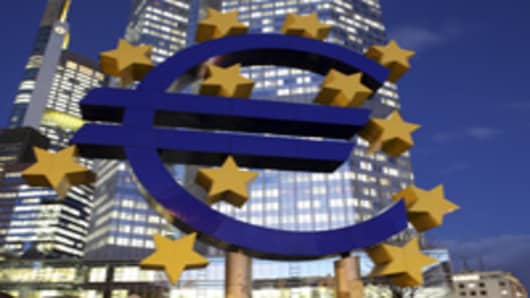The single most important event this week is the European Central Bank (ECB) meeting. The market is widely expecting the ECB to provide details on a new intervention program, first and foremost designed to ensure that periphery yields come down.
While the head of the ECB [learn more], Mario Draghi, did announce a bond-buying program in August, I am wondering whether the market again is getting ahead of itself and setting itself up for disappointment. There is, after all, still a very big chance that we'll have to wait even longer to hear the real details of how it works.
Just over a week ago, press reports emerged suggesting that the ECB was looking at setting up a system where it buys bonds when yields [learn more] move beyond a certain level. However, this seems to be more wishful thinking than anything else, as surely the Germans still would have a thing or two to say about this. Most economists I speak to don't think the ECB would set a cap, or a defined level, where it would step into the market.
Also, if yields have stabilized somewhat (which they have), and we still are dealing with record low rates (which we are), and markets aren't falling off a cliff (which they aren't), then perhaps it's OK for the ECB not to provide full-blown support at this stage.
On top of this, Spain will resume its bond auctions after a very, very quiet August. Since late July we have seen a significant rally in Spanish bonds, especially in the shorter-dated paper, on the notion that the ECB could step in and support the debt markets. According to Reuters, analysts think Madrid needs to issue around 25 billion euros worth of bonds during the remainder of 2012. This is despite Spain announcing last week that it had covered around 73 percent of the medium- and long-term debt it is looking to sell this year.
A more likely scenario for Thursday, if anything, might be relaxing collateral requirements. We have seen this in the past, it is supportive, but not too supportive, and could serve to buy policy makers more time.
One of the legalities which policy makers no doubt would like out of the way is the German constitutional court ruling on the European permanent bailout fund, theESM. The ESM must be ratified by countries representing 90 percent of its capital commitment, and it needs Germany to go into effect. The ruling on this happens on September 12.
There is of course also still the ongoing issue of what the ECB's mandate really is and how pedantic we should be in interpreting it. But regardless of how we each define obtaining "stability", if the Bundesbank continues to object ECB efforts, then how much the ECB steps in ultimately will depend on the level Draghi can stomach going up against Europe's paymasters.


